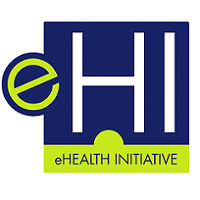 2019 Survey on HIE Technology Priorities: The Status of Health Information Exchange in 2019
2019 Survey on HIE Technology Priorities: The Status of Health Information Exchange in 2019
Brought to you by eHealth Initiative Foundation and Orion Health
For almost two decades, eHealth Initiative and Foundation (eHI) has monitored the state of health information exchanges. Healthcare is experiencing rapid evolution with the emergence of new technologies and payment models. In response, both the public and private sectors are seeking ways to improve the quality and safety of care, resulting in a growing momentum to improve interoperability. Organizations like health information exchanges (HIEs) and health information networks (HINs) act as a source of valuable information and services, making the continued evaluation of their challenges, opportunities, and priorities important.
Based on results from eHI’s 2019 Survey on HIE Technology Priorities, this report examines HIE perspectives on:
- Adoption of new technology
- Integrating clinical and claims data
- Types of data being exchanged
- Business drivers and priorities
- Challenges associated with the aforementioned
Highlights of the Key Findings of the HIE Survey
- 92% of respondents state that value-based care trends influence their decisions about technology adoption
- Managing risk and delivery on value-based contracts is one of the top business drivers for 58% of respondents, while easier integration through APIs and providing clear value to end users each represent top drivers for 47% of respondents
- Respondents are prioritizing interoperability (47%), value-based care (43%), and integrating EMR and HIE workflows (40%) in the next two years
- Respondents frequently offer services such as provider alerts (77%) and HIE to HIE exchange (72%)
- Very few respondents are offering services such as remote patient monitoring (6%) and 40% are not likely, or not very likely, to adopt remote patient monitoring in the next two years
- 67% of respondents have seen a significant, or very significant, increase in demand from payers for more access to clinical data
- The most significant challenges in managing claims and clinical data are data quality issues (58%), cost of technology (56%), and availability of qualified staff (49%)
Watch the Webinar
